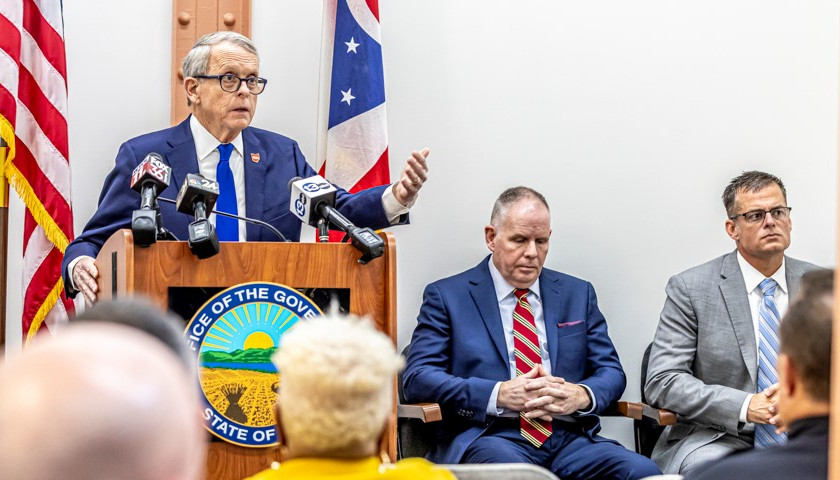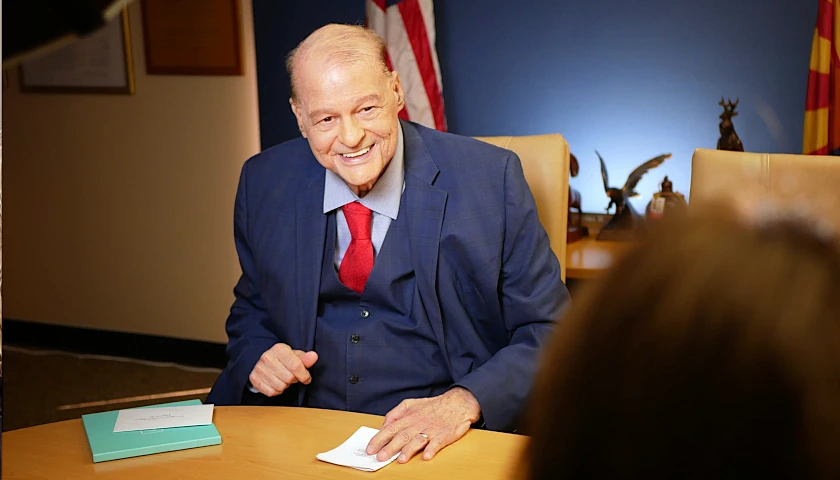Ohio Governor Mike DeWine is pushing for $13 million of the state’s biennial operating budget to be used for the expansion of the statewide Narcotics Intelligence Center.
The governor discussed the funding during the Ohio Narcotics Intelligence Center’s Law Enforcement Drug Summit on Thursday saying that this $13 million increase is pivotal as it better allows them to assist local law enforcement agencies across the state with handling drug-related violent crimes.
According to DeWine, the funding would go toward adding additional staff to the Narcotics Intelligence Center as well as purchasing new equipment and software.
“We’re going to be able to just serve more law enforcement agencies and we are going to be able to serve them quicker in getting information back to them,” DeWine said.
DeWine established the Narcotics Intelligence Center in 2019 to aid neighborhood police in using cell phones and other technology to look into drug trafficking. The governor stated that the Narcotics Intelligence Center has supported more than 3,200 investigations and looked at data on more than 7,500 cell phones.
“Cell phones now contain so much information so any criminal investigation almost every single one involves a cell phone,” DeWine said.
Collaborations between local law enforcement and the center help detect new narcotics in the state more quickly and enable lawmakers to take action more quickly to make the trafficking of such drugs illegal, according to DeWine. Additionally, it aids in educating the general public and law enforcement about narcotics.
A recent Narcotic Intelligence Center investigation included several Ohio law enforcement agencies as well as those from several other states and extended from northern Ohio all the way to Mexico.
Investigations resulted in the seizure of 76 kilograms of fentanyl including 115,500 fentanyl-laced pills, nine kilograms each of methamphetamine, cocaine and marijuana, and distributable amounts of heroin and crack cocaine. Eleven people were charged, and the investigation revealed connections between the case and criminal networks in West Virginia, California, Georgia, and North Carolina.
Currently, the funding for the Narcotics Intelligence Center is solely contingent on the conference committee’s approval of the state’s budget proposal. The proposed state budget went to a conference committee last week after members of the Ohio House decided not to agree with it. Members of the house, senate, and governor will meet in the conference committee to consider and possibly vote on a proposal.
DeWine said that he thinks the money for the Narcotics Intelligence Center will be able to remain part of the current proposed budget.
Under the Ohio Constitution, lawmakers must pass the state’s two-year budget and have it signed into law before the fiscal year’s end on June 30th. If so, Narcotics Intelligence Center will receive its extra $13 million.
In addition to the Narcotics Intelligence Center, DeWine stated that the state wants to keep supporting regional police enforcement organizations. In areas where crime is rising, the state makes other agencies ready to assist.
The governor indicated that parole officials from the Ohio Department of Rehabilitation and Correction can check on parolees in the community and that local authorities can employ the Ohio State Highway Patrol as backup if needed. In addition, state liquor agents can also assist regional law enforcement organizations.
– – –
Hannah Poling is a lead reporter at The Ohio Star and The Star News Network. Follow Hannah on Twitter @HannahPoling1. Email tips to [email protected]
Photo “Mike DeWine” by Mike DeWine.








